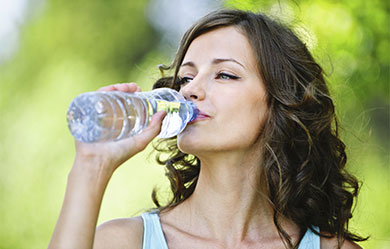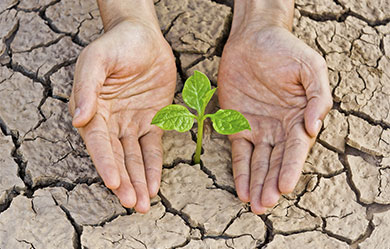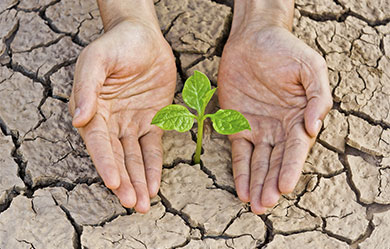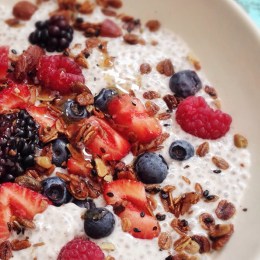
If you’re in the body-shaping industry, offering clients technology and/or treatments to help them shift stubborn fat deposits, what they eat and drink (or don’t drink, as we’ll soon explain) between sessions will have a significant impact on the outcome – for better or worse.
What appears as fat could actually be the consequence of chronic dehydration. So not only is it important to encourage clients to drink lots of water after treatments to help flush the body more quickly of the toxins or detritus of fat cell destruction that are released, but to extol the benefits of maintaining hydration levels over the longterm for best results.
In a similar vein, clients who go to salons, spas and clinics for anti-ageing and corrective skin procedures could unwittingly be negating the effects by something as simple as not drinking enough water/(good) fluids.
As an analogy, if a plum is dried out is becomes a prune. If a person’s skin is dehydrated they can look like the proverbial withered prune irrespective of how much they spend on fountain of youth treatments and products.
SPA+CLINIC was impressed by this article beolow from wellbeing website Healthy And Natural World*.

If you have a plant and forget to give it water for extended periods of time what happens? The physical appearance of the plant begins to wither. It shrivels and dries up, loses its colour and liveliness. It eventually dies.
Humans aren’t different than plants in this respect. Without water, which comprises approximately 75 percent of our bodies, we would die. However, humans are different than plants in that we have a much more complicated set of consequences to face if we don’t receive adequate water consumption.
Our bodies are like a factory that are constantly maintaining themselves and producing things with the help of water as its labour force. If we run low on that fuel it’s imperative that it gets refilled as soon as possible. Without it, we could face minor and major problems such as weight gain, tiredness, asthma, premature ageing, seizures – even death.
When your body is dehydrated it means that your loss of water has exceeded the intake of water over time. The excessive loss of water within your body isn’t compensated with enough re-fuelling during dehydration and as a result it has some hefty consequences, including:
Weight Gain. Dehydration is commonly mistaken for as hunger. People don’t realise that their body is asking them for water and they turn to food instead. With a combination of low energy and a low metabolic rate as a result of water deficit, weight gain is a likely consequence of dehydration.
Fatigue. Most people look at athletes who are completely tired out and think that muscle exertion is the only cause. In fact, there have been studies that link athlete exhaustion to dehydration. A person not drinking enough water is much more susceptible to drained muscular activity because the heart has to work overtime to pump oxygen and nutrients throughout the blood.
Irritability. Recent studies at the University of Connecticut’s Human Performance Lab in the US have suggested links between negative mood swings and a lack of hydration. The results showed that the level of dehydration didn’t even have to be severe to cause a noticeable swing in mood.
Spiked Blood Pressure. When someone has a low level of water in their system, the blood will most likely begin to thicken. As a result of this, it becomes more difficult for the blood to flow healthily throughout the body. With an increase in resistance comes an increase in blood pressure, a condition frequently linked to heart disease and stroke.
Ageing. If we continue with the analogy above, water also serves as a maintenance crew for your body in the factory workforce. The water hydrates tissue to keep you looking young on the outside and feeling young on the inside. It’s worth noting that dehydration is a larger risk factor for older individuals, and without the proper water balance a person is more susceptible to chronic diseases associated with ageing.
Skin Conditions. Drinking water gives the body fuel to flush the toxins to keep skin healthy. Without water, it is much more susceptible to distressing disorders such as psoriasis and dermatitis.
Joint Pain. Joints take a constant beating throughout the day. This is especially true for joints that bear near-constant loads of weight such as the knees. Water actually forms a cushion of cartilage that relieves tension in the joints and keeps soreness and stiffness at bay.
Allergies and Asthma. The body has certain defence mechanisms that works against it when there isn’t enough water. The nose and throat are restricted to keep as much water in as possible. As a result of this, people with allergies and asthma find it difficult to breath when they are dehydrated.
High Cholesterol. Here we see yet another counter-intuitive defence mechanism of dehydration, in which cholesterol levels are raised to keep the cells from losing water. This leads to a spike in cholesterol levels.
Digestive Problems. The colon needs water to avoid constipation and maintain healthy bowel movements. Other digestive problems such as ulcers and gastritis have been linked to a lack of water and mineral consumption. Poor digestion and constipation can lead to bloat – which also are big contributors to a ‘fatter’ appearance.
Kidney and Bladder Disorders. Lack of water can let toxin and bacteria build-up become an issue. The kidneys and bladder are two organs that are particularly susceptible to infection. Dehydration can also can cause acute kidney injury and could stop the kidneys stop working altogether.
Of course the most serious consequence of untreated dehydration is death. Blood will begin to stop flowing in sufficient amounts to the organs and a severely dehydrated person will often slip into a coma, experience organ failure and die.
How Much Water To Drink
Everyone’s heard the advice of drinking eight glasses of water (or fluids) a day, totalling around two litres. Now, when we say fluids, we don’t include alcoholic or caffeinated beverages in the quota, as they are dehydrators. Soft drinks are not recommended, either, for their high sugar content.
The amount of water/fluid intake needs really depends on several factors, such as how active the individual is, their health, overall body mass and the climate in which they live.
www.healthyandnaturalworld.com
* Healthy And Natural World is dedicated to offering information to its audience that empowers them to improve their health and wellbeing naturally.




